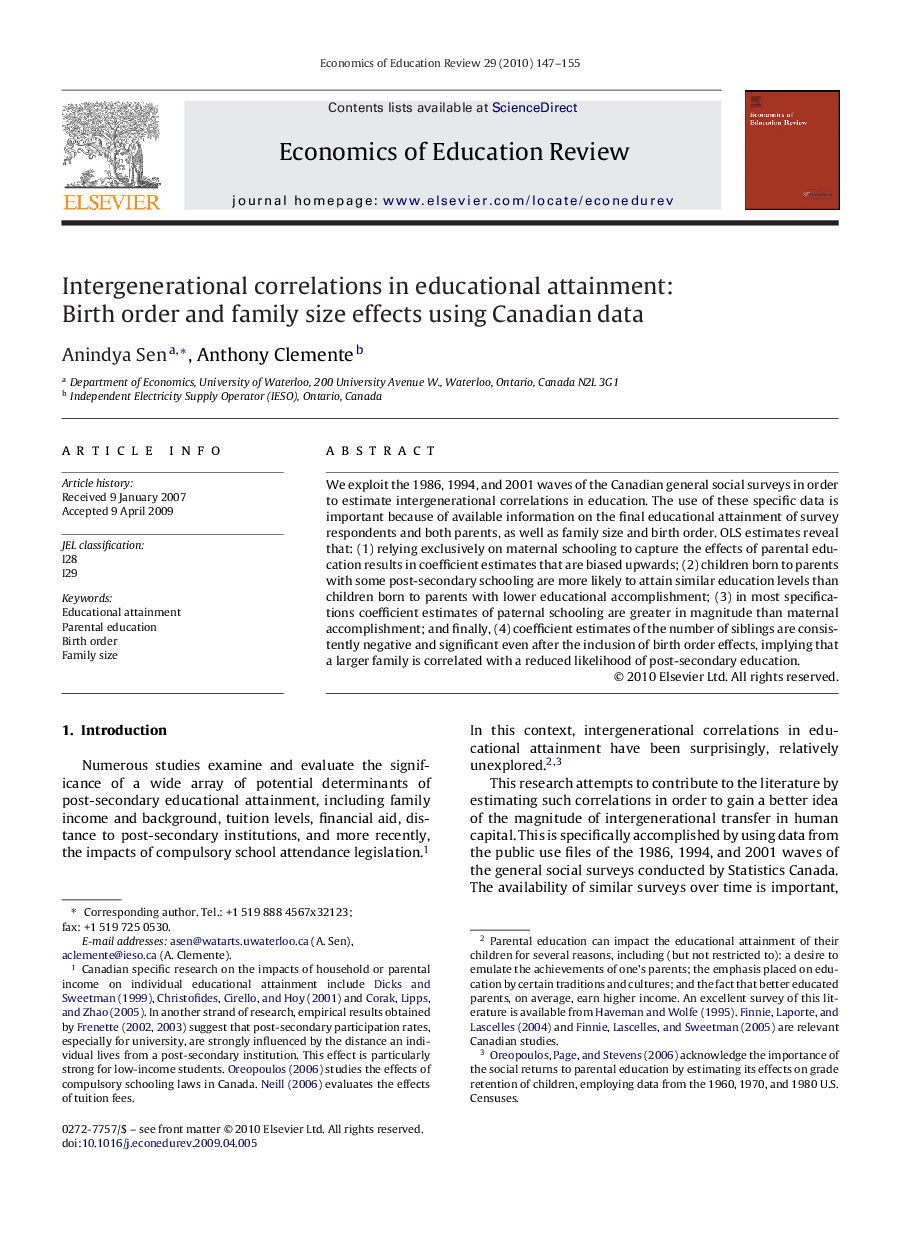| Article ID | Journal | Published Year | Pages | File Type |
|---|---|---|---|---|
| 354861 | Economics of Education Review | 2010 | 9 Pages |
We exploit the 1986, 1994, and 2001 waves of the Canadian general social surveys in order to estimate intergenerational correlations in education. The use of these specific data is important because of available information on the final educational attainment of survey respondents and both parents, as well as family size and birth order. OLS estimates reveal that: (1) relying exclusively on maternal schooling to capture the effects of parental education results in coefficient estimates that are biased upwards; (2) children born to parents with some post-secondary schooling are more likely to attain similar education levels than children born to parents with lower educational accomplishment; (3) in most specifications coefficient estimates of paternal schooling are greater in magnitude than maternal accomplishment; and finally, (4) coefficient estimates of the number of siblings are consistently negative and significant even after the inclusion of birth order effects, implying that a larger family is correlated with a reduced likelihood of post-secondary education.
